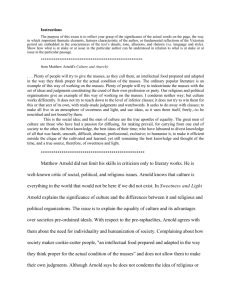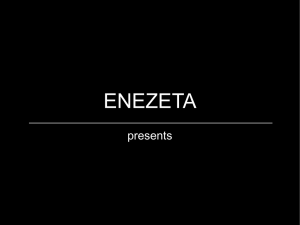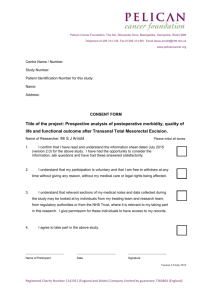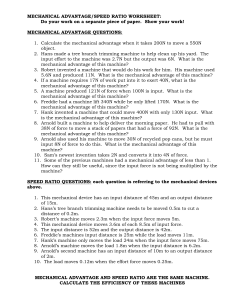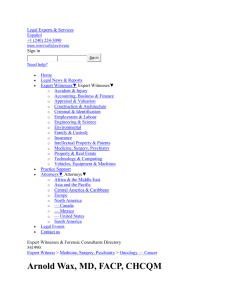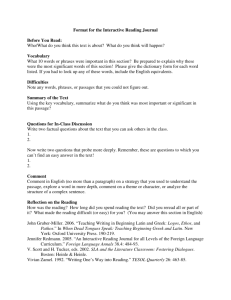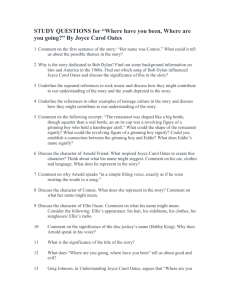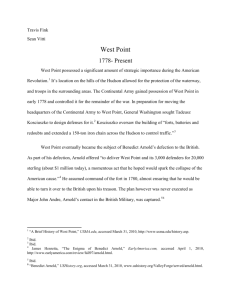Matthew Arnold did not limit his skills in criticism only to literary
advertisement
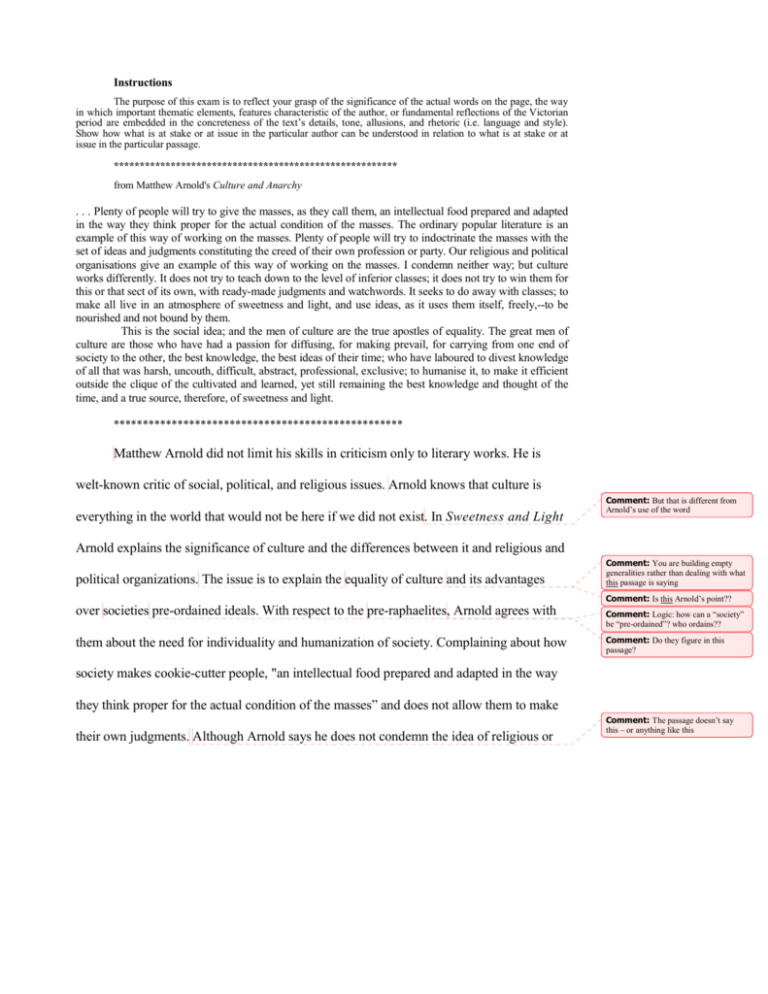
Instructions The purpose of this exam is to reflect your grasp of the significance of the actual words on the page, the way in which important thematic elements, features characteristic of the author, or fundamental reflections of the Victorian period are embedded in the concreteness of the text’s details, tone, allusions, and rhetoric (i.e. language and style). Show how what is at stake or at issue in the particular author can be understood in relation to what is at stake or at issue in the particular passage. ******************************************************* from Matthew Arnold's Culture and Anarchy . . . Plenty of people will try to give the masses, as they call them, an intellectual food prepared and adapted in the way they think proper for the actual condition of the masses. The ordinary popular literature is an example of this way of working on the masses. Plenty of people will try to indoctrinate the masses with the set of ideas and judgments constituting the creed of their own profession or party. Our religious and political organisations give an example of this way of working on the masses. I condemn neither way; but culture works differently. It does not try to teach down to the level of inferior classes; it does not try to win them for this or that sect of its own, with ready-made judgments and watchwords. It seeks to do away with classes; to make all live in an atmosphere of sweetness and light, and use ideas, as it uses them itself, freely,--to be nourished and not bound by them. This is the social idea; and the men of culture are the true apostles of equality. The great men of culture are those who have had a passion for diffusing, for making prevail, for carrying from one end of society to the other, the best knowledge, the best ideas of their time; who have laboured to divest knowledge of all that was harsh, uncouth, difficult, abstract, professional, exclusive; to humanise it, to make it efficient outside the clique of the cultivated and learned, yet still remaining the best knowledge and thought of the time, and a true source, therefore, of sweetness and light. ************************************************** Matthew Arnold did not limit his skills in criticism only to literary works. He is welt-known critic of social, political, and religious issues. Arnold knows that culture is everything in the world that would not be here if we did not exist. In Sweetness and Light Comment: But that is different from Arnold’s use of the word Arnold explains the significance of culture and the differences between it and religious and political organizations. The issue is to explain the equality of culture and its advantages Comment: You are building empty generalities rather than dealing with what this passage is saying Comment: Is this Arnold’s point?? over societies pre-ordained ideals. With respect to the pre-raphaelites, Arnold agrees with Comment: Logic: how can a “society” be “pre-ordained”? who ordains?? them about the need for individuality and humanization of society. Complaining about how Comment: Do they figure in this passage? society makes cookie-cutter people, "an intellectual food prepared and adapted in the way they think proper for the actual condition of the masses” and does not allow them to make their own judgments. Although Arnold says he does not condemn the idea of religious or Comment: The passage doesn’t say this – or anything like this political identities he is obviously against those parties moral authority over their members, de-humanizing them. For a culture to be successful it needs both sweetness and light; sweetness being the ingredient of a culture which is open, tolerant, and accepting. Light is Comment: This is an incoherent sentence – it doesn’t address what the passage actually says – and once again it fails to form the possessive case (a gradeschool matter) properly the intellectual part of culture. People must be transferred from their association's ideological placement and mentality to a person with a humanized purpose. The source of the sweetness and light comes from the “true apostles of equality”. Culture is the bearer of free will, social equality, knowledge, and humanization. Arnold believes that it is essential for a culture to have both elements of sweetness and light. Like the light from a candle comes from the wax it bums, and the sweetness of the honey brought by a bee, which makes the wax, completes the circle. With out the bee to bring the honey there would be no wax and therefore no candlelight. Comment: Your focus is not on the passage and the concrete series of points Arnold is making – in fact, you don’t really deal with the passage (which is the whole point of the topic) but instead bring a lot of half-grasped context into play – you need to be much more precise and concrete: in your reading as well as your writing - F
